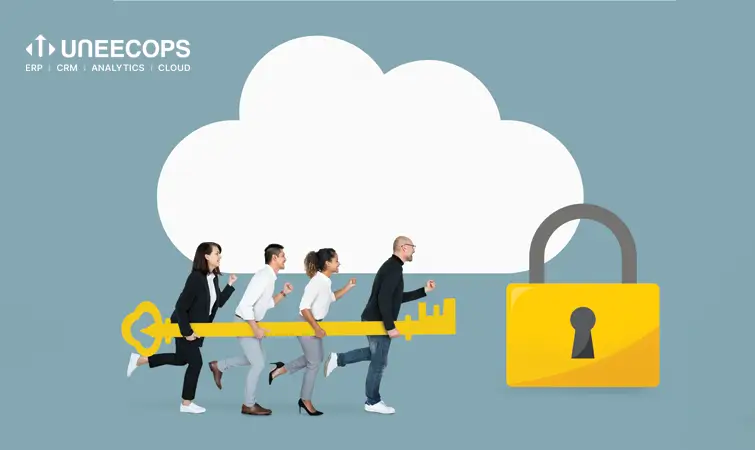To cloud or not, is a critical question which businesses face while considering an ERP. On one side is the scalability and flexibility offered by the cloud, and on the other side is complete ownership of on -premises. Here is a point by point comparison of cloud and on-premises ERP to help you decide better!
What’s the difference?
The basic difference between on premise ERP and cloud ERP is that an on premise ERP solution would typically be set up locally on your IT infra – all hardware and server components would be managed by your staff, locally. While in the cloud model, the infrastructure is offered as a service. All the required hardware and servers are managed by the vendor.
Cloud-based ERP:
| Ups | Downs | |
| Cost | • Lower upfront cost
• No fixed asset investment in hardware or servers. |
• Businesses may eventually end up spending more money depending on the lifecycle of the system and the number of users. |
| Security | • Data security is completely controlled by the vendor. | • Data security is in the hands of the vendor. While vendors pledge strict data security standards, some organizations might not have total peace of mind with this arrangement. |
| Customization | • Customization is frequent and comparatively cheaper as the vendor takes care of all necessary updates and upgrades.
• Businesses can also decide what customizations they want to opt for. |
• Less customizable in general |
| Implementation | • Shorter implementation cycle | • Since customization is limited, implementation cycle is also shorter. |
On-Premises ERP
| Advantages | Disadvantages | |
| Cost | • License driven one-time costs. | • Heavy upfront investment for hardware and other required IT infrastructure. |
| Security | • Business has the complete control over data security. | • Businesses need to be well versed with all security protocols. |
| Customization | • Can be customized to a large extent to match even very niche needs. | • Customizations come at the cost of longer implementation cycles. |
| Implementation | • Organization has more control over the implementation process | • Implementation process can take significantly longer |






